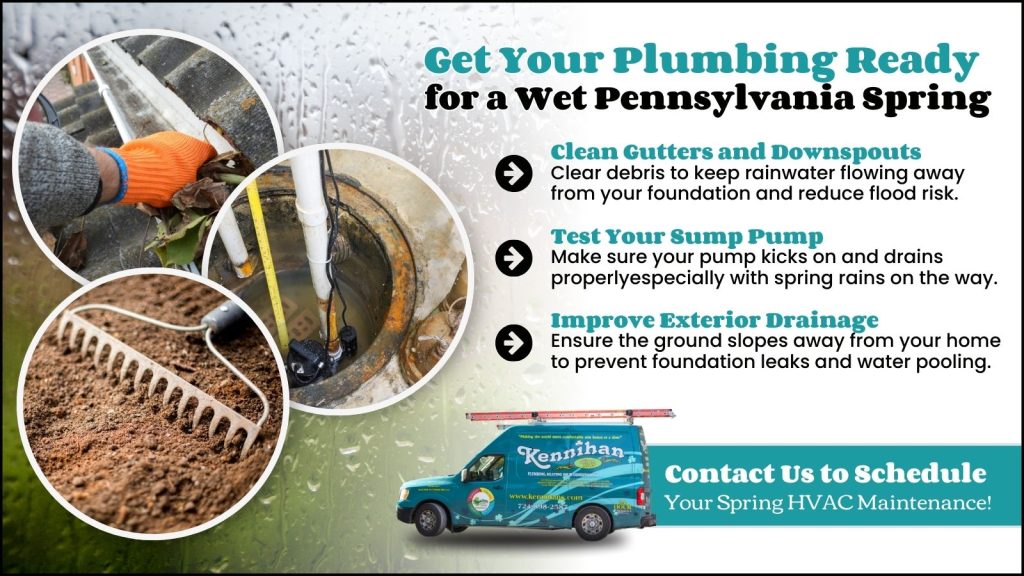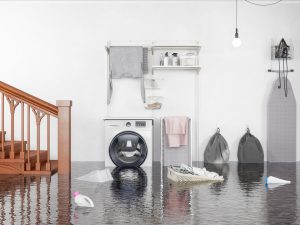Spring in Pennsylvania brings much-needed rainfall that helps nurture plants and freshen up the landscape. However, the heavy rains also come with the risk of flooding, basement leaks, and plumbing issues. Homeowners need to take proactive steps to ensure their plumbing system is ready to handle the seasonal weather.
By preparing your plumbing for spring rains, you can avoid expensive repairs and ensure your home remains safe and dry during the wet season. Don’t forget to schedule a sump pump repair in Allison Park if you suspect the system is in need!

1. Inspect and Clean Gutters and Downspouts
One of the most important things you can do to prepare your plumbing for spring rains is to check and clean your gutters and downspouts. Clogged gutters can prevent water from flowing away from your home’s foundation, leading to water overflow, which can cause leaks, basement flooding, and even damage to your plumbing. Make sure your gutters are clear of leaves, twigs, and other debris. Additionally, check that your downspouts are directing water at least three to four feet away from your foundation to prevent water from seeping into your basement or foundation walls.
2. Check Sump Pump Functionality
If you have a sump pump in your basement or crawl space, it’s essential to check that it’s functioning properly before the spring rains arrive. Sump pumps help prevent flooding by pumping excess water out of your basement and away from your home’s foundation. Test the pump by pouring a small amount of water into the sump pit to make sure it activates and drains the water efficiently. If the pump seems to be malfunctioning or making strange noises, it might be time to call our team for maintenance or replacement. Consider installing a battery backup for your sump pump to ensure it continues to work during power outages, which are common during spring storms.
3. Ensure Proper Drainage Around Your Home
In addition to maintaining your gutters, ensure that the land surrounding your home slopes away from the foundation. If water collects near your home, it could seep into the foundation and damage your plumbing. If the ground around your home is flat, consider regrading it to promote better drainage. Proper drainage is a key factor in preventing water-related plumbing issues during spring rains.
4. Check for Leaks and Blockages in Pipes
Heavy rains can put additional stress on your plumbing system, so it’s a good idea to check for leaks or blockages before the rainy season begins. Look for any signs of leaks around faucets, toilets, and under sinks. If you notice any drips or wet spots, contact us promptly to prevent water damage. Blockages in pipes can cause backups and overflows, especially during periods of heavy rain when the system may be under more pressure. If you suspect a blockage, it’s best to call in a plumber to clear the pipes before the rains arrive.
Contact Kennihan Plumbing & Heating, Inc. today to schedule an appointment with our professionals. We treat your home like it’s our grandma’s home.

